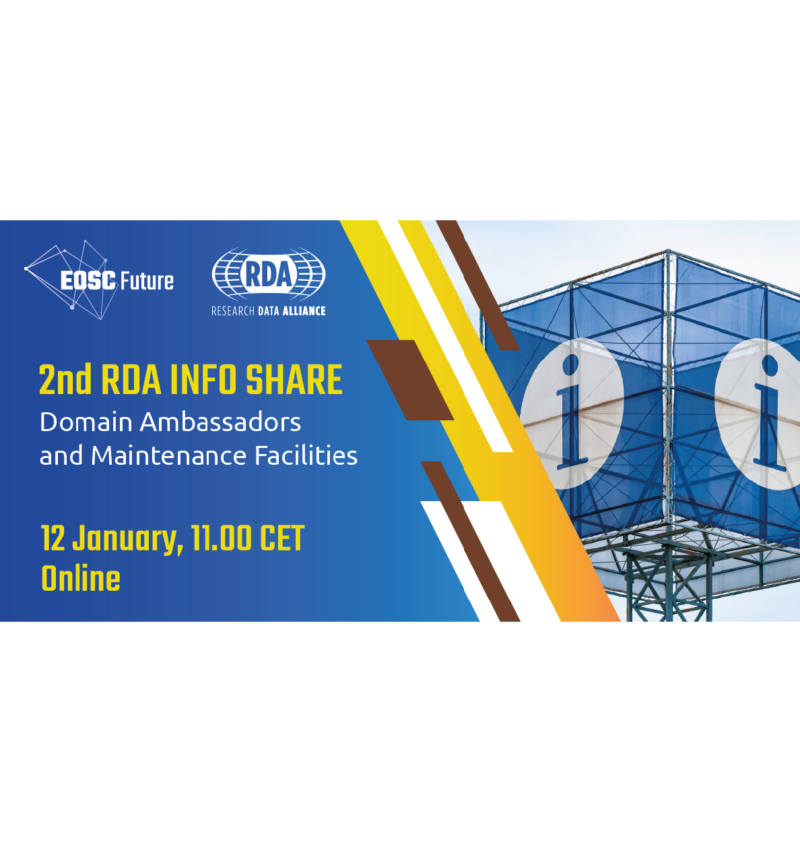2nd RDA Info Share Webinar
Home | Events | Policymakers | 2nd RDA Info Share Webinar

Online, 12 January 2022.
The EOSC Future project is organising the second RDA info share webinar. This online event will highlight two new RDA Open Calls focusing on domain ambassadors and maintenance facilities. The information session will delve into the details of both calls as well as future RDA funding plans. Register now.
The Research Data Alliance (RDA) Open Calls aim to bring data initiatives closer to EOSC and provide EOSC with expertise, tools, best practices and standards from the global research data community. Throughout the entire EOSC Future project, the RDA’s €1 million mechanism will award over 65 grantees under 9 open calls.
On 12 January, EOSC Future and RDA will hold the second RDA info share webinar to discuss the second & third RDA Open Calls:
- Open Call for Domain Ambassadors (Deadline: 15 February 2022, 16.00 CET) invites disciplinary experts and groups to serve as ‘EOSC communicators’ within their respective communities
- Open Call for Maintenance Facilities (Deadline: 15 March 2022, 16.00 CET) is tailored to individuals/teams who can help establish an EOSC maintenance facility drawing on RDA standards, tools and outputs.
Both calls are looking for applicants who can support EOSC – integrating services and expertise – but from distinct angles. Successful applicants will:
- contribute know-how to EOSC, while also benefitting from its services
- ensure EOSC has the necessary resources to provide its core services
- provide long-term maintenance solutions supporting the broader EOSC community
- leverage EOSC services in support of community-driven disciplinary development
- raise awareness and wider engagement in the EOSC community.
Info Share Agenda
11.00 – 11.05 Welcome & EOSC Future – RDA Open Call Context
11.05 – 11.15 Open Call Presentations: ‘RDA Open Call for Domain Ambassadors’ & ‘RDA Open Call for Maintenance Facilities’
11.15 – 11.20 Next RDA Open Calls (planned until mid-2022)
11.20 – 11.45 Questions and Answers
Registration
This meeting is open to anyone interested in RDA and EOSC-related topics, whether RDA open call applicants, EOSC Future consortium members, or other interested parties.
Interested? You can register here.
You can also consult the EOSC Future Funding Platform for more information on both calls, the number of grantees and scope.
EOSC Future is just one of the many ongoing high-level projects that LifeWatch ERIC is involved in.